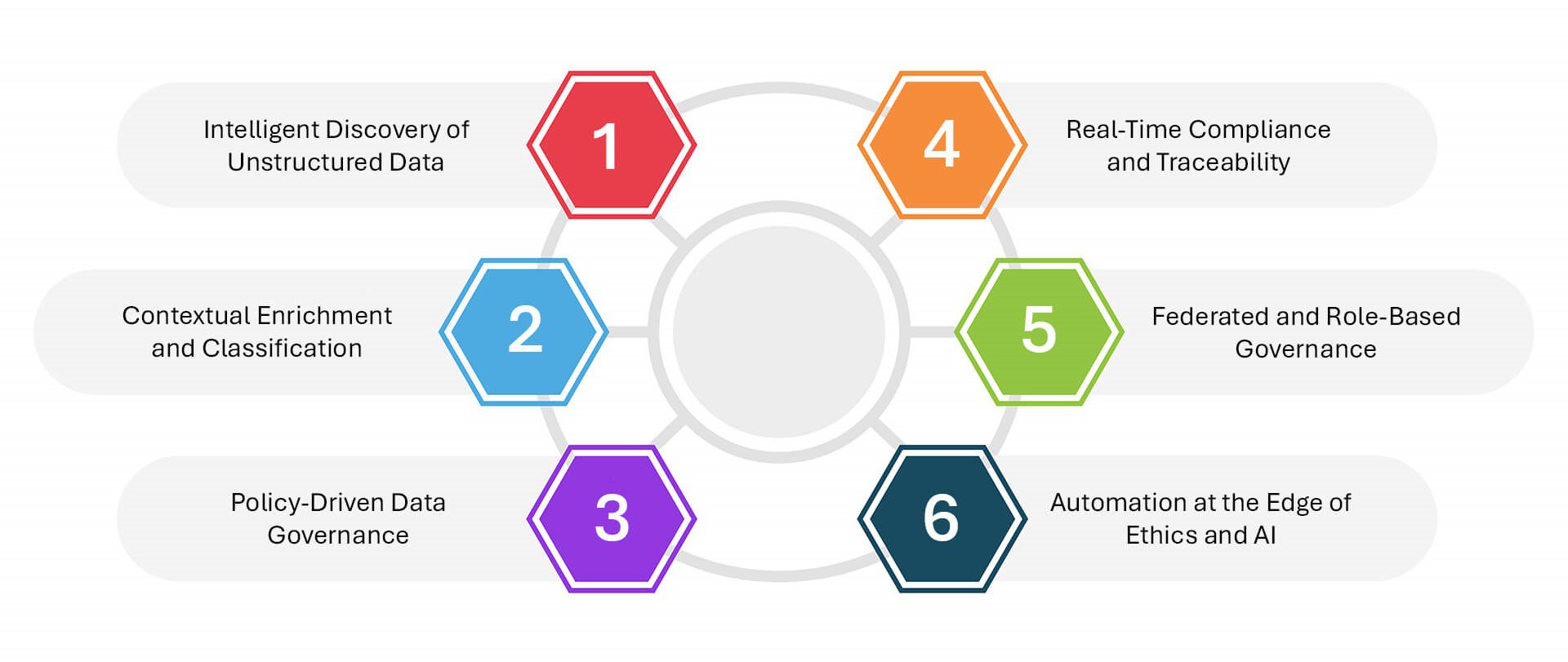In 2025, the world finds itself at the precipice of an extraordinary shift. Nations like the UAE, Saudi Arabia, and Qatar are no longer just adopting artificial intelligence (AI)—they are shaping the rules that will govern it. But with great innovation comes a greater responsibility: ensuring that AI’s rise is firmly rooted in ethics, trust, and compliance.
The global ambitions are clear. As the fourth industrial revolution accelerates, governments and businesses across the Middle East are awakening to the global pivot toward AI and advanced technologies. The choice is stark: embrace disruption or risk obsolescence, and economically, falling behind is not an option.
The Middle East is projected to capture 2% of the global AI dividend by 2030, equivalent to a staggering US$320 billion. Saudi Arabia is expected to reap the largest absolute gain, with AI contributing over US$135.2 billion—around 12.4% of its GDP. Meanwhile, the UAE is set to lead in relative impact, where AI could account for nearly 14% of its GDP by 2030. These figures could rise even higher if regional governments continue to accelerate AI adoption and integration across sectors. With projected annual AI contribution growth between 20% and 34%, the UAE and Saudi Arabia are poised to lead the region’s AI-driven economic transformation.
Today’s decisions will define not only regional prosperity but also global trust in Middle Eastern innovation.
A Region on the Move
The UAE’s leadership in AI, demonstrated by the Falcon LLM model outperforming major tech competitors, shows what’s possible when state support, capital, and strategic vision align (Le Monde). In 2024, the UAE issued its AI Charter, articulating principles of transparency, governance, and privacy, signalling a future where ethical innovation is the norm, not the exception (Gcore).
Saudi Arabia’s SDAIA spearheads the Kingdom’s data governance, while the new Personal Data Protection Law (PDPL), effective since September 2024, is reshaping how businesses and governments handle personal data (PwC). Meanwhile, Qatar’s PDPPL and its Qatar Center for Artificial Intelligence (QCAI) are setting high benchmarks for AI oversight.
The Middle East is not just participating in the AI revolution—it is writing its next chapter.
Innovation Without Guardrails
The AI revolution is accelerating, but not without consequences. As organizations rush to innovate, a critical vulnerability is emerging—unstructured data. According to the 2024 IBM X-Force report, 68% of cyberattacks now target unstructured data, the very foundation on which AI models are built. This is especially alarming for the Middle East, where IDC reports that 80% of enterprise data is unstructured. What fuels innovation also opens the door to significant risk.
Beyond security, the unchecked growth of AI brings ethical challenges. As models grow more complex, so does the risk of bias, discrimination, and opaque decision-making. Gartner forecasts that by 2026, 45% of AI failures will be the result of poor data governance. Without proactive ethical guardrails, organizations not only face regulatory penalties and reputational fallout but also risk undermining public trust—an irreplaceable asset in an AI-driven economy.
In a region positioning itself at the forefront of digital transformation—from Saudi Arabia’s Vision 2030 to the UAE’s AI Strategy—ethics cannot be an afterthought. It must be embedded at the core of innovation. The question is no longer if ethics should be prioritized, but how it can be operationalized.
From Reactive Compliance to Proactive Ethics: A New Blueprint

In the era of algorithmic decision-making, meeting compliance requirements is no longer sufficient. The future belongs to enterprises that make ethics a proactive strategy—not a reactive checklist. As governments in the Middle East and beyond accelerate AI regulation—introducing mandates like the UAE’s AI Ethics Charter and Saudi Arabia’s Personal Data Protection Law—organizations must prepare for a paradigm where data governance, privacy, and accountability are foundational pillars of AI-readiness.
The solution lies in architecting a data ecosystem that is not just compliant, but intelligently ethical. This means reimagining how data is discovered, understood, secured, and governed—not as isolated steps, but as an integrated, continuous process across the enterprise.
- Intelligent Discovery of Unstructured Data: At the core of the solution is the ability to scan across sprawling, hybrid environments and surface what was previously invisible. Sensitive files buried in forgotten storage, redundant datasets cluttering data lakes, and high-risk assets lacking appropriate access controls—all need to be identified automatically and at scale. Without this level of visibility, any attempt at ethical AI remains fundamentally flawed.
- Contextual Enrichment and Classification: Raw data, especially unstructured data, often lacks business context. Enrichment involves tagging and classifying information based on multiple parameters—its sensitivity, regulatory impact, ownership, usage patterns, and business relevance. This process not only improves the fidelity of data used for AI but also helps prevent bias and blind spots during training. Enriched data is the bridge between raw potential and informed decision-making.
- Policy-Driven Data Governance: Ethics must move from boardroom discussions to operational enforcement. This requires embedding policies directly into data workflows, such as who can access what, for what purpose, and for how long. It’s about converting static policies into dynamic, enforceable controls that evolve with the data. Whether it’s enforcing consent, ensuring data minimization, or applying retention limits, the goal is to make policies living mechanisms within the data architecture.
- Real-Time Compliance and Traceability: As AI systems become more autonomous, the ability to trace how data was collected, transformed, and used becomes essential, not just for audits but for accountability. A robust system must provide real-time lineage maps and audit trails that allow organizations to demonstrate compliance with national and international laws. This level of transparency is critical to building public and regulatory trust in AI-powered operations.
- Federated and Role-Based Governance: Modern data governance cannot be a centralized bottleneck. It needs to be distributed, enabling data and application owners to manage their domains within a controlled framework. This federated model promotes faster decision-making, better contextual understanding, and stronger accountability, without compromising on oversight or security. It aligns perfectly with the agile, cross-functional data ownership models increasingly adopted by enterprises embracing AI.
- Automation at the Edge of Ethics and AI: Speed and scale are crucial. Manual processes can’t keep up with the volume, variety, and velocity of data involved in AI initiatives. Automation—fueled by AI itself—must drive continuous discovery, enrichment, policy enforcement, and remediation. This ensures that ethical data management isn’t a quarterly activity, but a real-time, built-in function of every data interaction.
Why This Matters Now
Enterprises in the Middle East are at a critical inflection point. As AI maturity grows, so do the risks associated with poor data hygiene, opaque models, and fragmented governance. The region’s push for innovation must be matched with an equal commitment to responsibility and resilience.
By adopting a holistic, intelligent approach to data governance—one that bridges IT, business, and compliance—organizations can create a foundation of trust. And in the age of AI, trust is not a byproduct. It is the infrastructure.
To help enterprises bring this ethical AI vision to life, Zubin—Data Dynamics’ AI-powered, self-service data management software enables intelligent discovery, contextual enrichment, automated governance, and real-time compliance across unstructured data landscapes. It transforms fragmented data environments into secure, transparent, and AI-ready ecosystems, giving data owners control, CISOs confidence, and regulators clarity. In a world where ethics, privacy, and performance must coexist, Zubin is the engine that powers responsible AI at scale. Book your demo today to explore more about Zubin.






